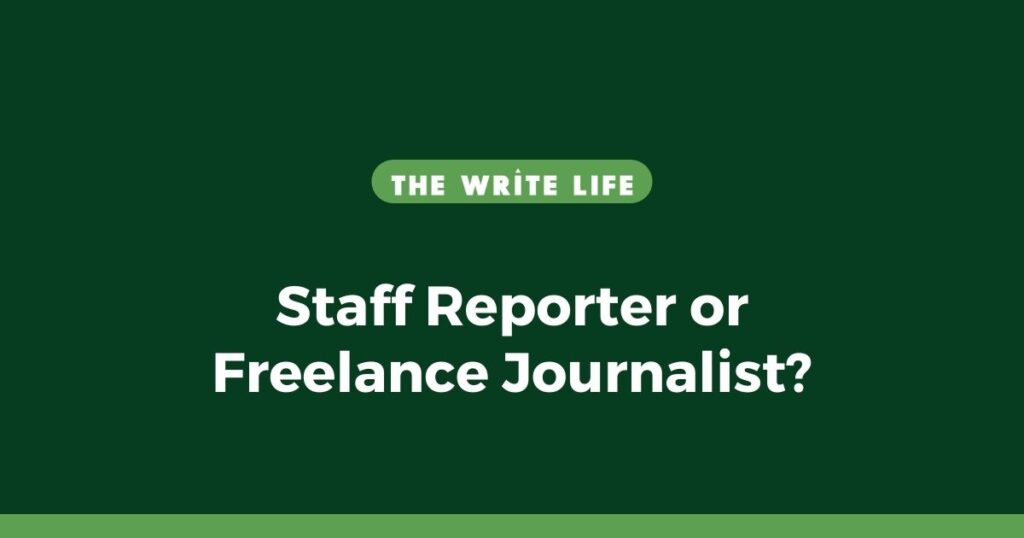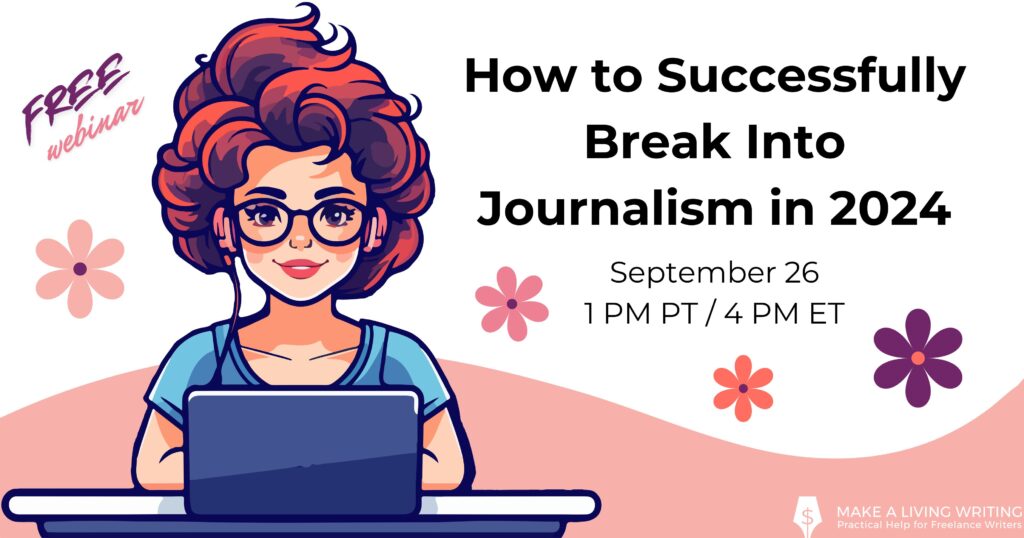Want to begin a profession in journalism by working within the media industry as a author? You normally have two options: you’ll be able to seek employment as a staff member at a publication or you’ll be able to hunt down freelance writing opportunities.
Since the variety of positions in journalism still falling and huge corporations are shedding editorial staff en masse, many aspiring writers find that working for themselves offers more stability.
Which Journalism Profession Path Is Right For You? Two Options
Each option has its pros and cons — but in case you’re recent to copywriting, how do you already know which option is true for you?
When you’re recent to the industry and wondering which path is true for you, here’s what you must find out about being a freelancer versus an employed journalist.
I’ve worked on each side of the equation, and now as an editor managing each a staff of standard writers and a team of freelance writers, I actually have a fair higher understanding of the roles and responsibilities of every group.

Independent reporting
As freelance author Danielle Corcione wrote on Muck Rack (sorry, link not energetic), freelance writers often retain full editorial control over their projects: they typically select their very own assignments, whether it’s something they pitch to an editor or something they select to write down on the request of an editor.
Freelance reporters are typically not certain by noncompete agreements, which suggests they will write for and be published by a big selection of outlets. That type of variety and freedom could be very appealing to writers who need to try working with different topics, writing styles and editors.
Starting your journalism profession as a freelancer has several key benefits.
The barrier to entry could be very low, and also you don’t need a journalism degree to do it, so you’ll be able to start freelancing whilst you’re still in class, like I did, and begin constructing a portfolio in time for (or if) you choose to hunt down full-time writing work. When you don’t know where to begin looking, you’ll be able to take a look at these 20 web sites.
The downside, after all, is that you just lose a variety of the steadiness that comes with traditional employment. You’re accountable for securing your individual advantages and budgeting your income and self-employment taxes (since they will not be robotically deducted like they do if you’re on payroll).
It’s much easier for an editor to desert a freelancer than an worker: a budget change or a couple of bad assignments could cause a publication’s source of income to suddenly end, so you have got to consistently plan your next move.
When you’re considering the freelance path, it’s a superb idea to get comfortable with pitching ideas to editors at various publications and coming up with useful, relevant story ideas for them. Once you pitch your ideas, check your message for spelling, grammar, and punctuation, in addition to a radical examination of the publication and its typical content and magnificence.
Staff Reporting
While some may argue that traditional journalism is dead (and the roles that got here with it), there are still full-time jobs to be present in the media industry. They could just be a bit of different from the roles of newspaper reporters of a long time past.
While press reporting jobs still exist, most journalism jobs today also involve digital work.
Many regular writers are expected to grasp search and social media trends to assist them generate story ideas, and knowledge of learn how to create and use visual assets (e.g. infographics and video content) is a big plus. These skills are also valued in freelancers, but writers who can offer the entire package can go far within the industry.
As mentioned above, working as a staff author also comes with some worker advantages and, in lots of cases, a more predictable schedule, making it more appealing than freelancing. However, chances are you’ll find yourself giving up a few of your creative and editorial freedom: strict deadlines, editors’ demands, and last-minute changes of direction are common in newsrooms, and chances are you’ll end up somewhat on the mercy of your organization’s management and executive teams.
Nevertheless, like freelancers, full-time writers are sometimes encouraged to pitch their editors, especially as they advance. It is advisable give you the chance to provide you with well informed, well researched proposals—Nevertheless, unlike freelancers, your income won’t rely on whether your offer is accepted or rejected.
Because full-time reporters are typically committed to a single publication (many media corporations have policies against freelancing for direct competitors), they will immerse themselves in that medium’s specific topics and audiences. As an worker, you’ll be able to subsequently more easily provide you with “good” pitches.
Still unsure which path to decide on? Try it out writing as a side hustle whilst you work as a full-time journalist, simply to see which you favor (or chances are you’ll find that you may successfully mix each).
In any case, it will be significant that you just understand what responsibilities your writing profession may entail and make an informed decision about your profession.

When you’re wondering what opportunities await indie authors in 2024 (hint: there are tons!), you’ll want to register for a free webinar on September 26, 2024 called How to Succeed in Journalism in 2024! You’ll study the different sorts of journalism and what chances are you’ll be best fitted to, in addition to crucial skills that successful journalists need and where this will lead.